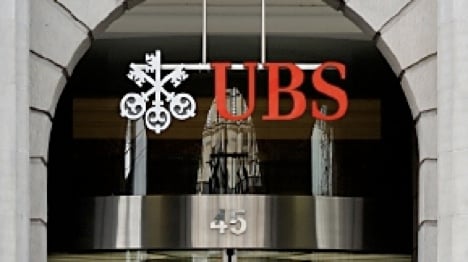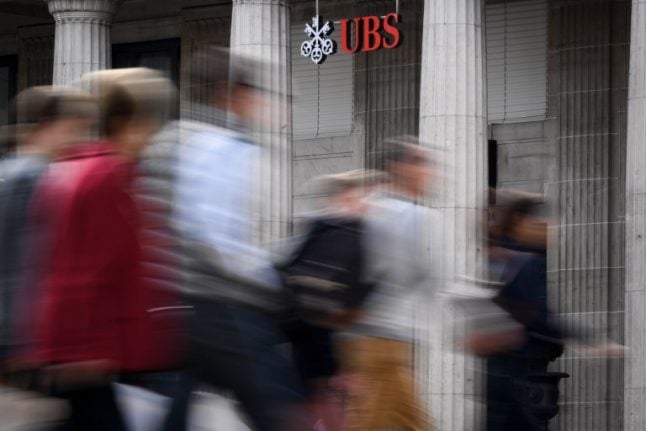For the June to September quarter, UBS saw net profit swell to 2.07 billion francs ($2.1 billion), soaring by 171 percent from the same period a year earlier.
Analysts polled by financial news agency AWP had expected Switzerland's largest bank to post a net profit of 1.7 billion francs.
But the dramatic rise was largely attributable to a 1.2-billion-franc net tax benefit, mainly related to an “upward revaluation of our deferred tax assets,” UBS said
The bank's adjusted profit before tax stood at 979 million francs for the quarter, it said.
UBS's operating income meanwhile inched up four percent year-on-year to 7.1 billion francs, slightly below the 7.2 billion anticipated by analysts.
Company chief Sergio Ermotti and chairman Axel Weber called the bank's performance “solid” even though “the macroeconomic backdrop for the quarter was very challenging,” because of widespread market volatility and dwindling activity in Asia.
This was especially apparent in the bank's wealth management division, they said, which saw “client transactional activity dropping to its lowest level in four years.”
The division saw its operating profit before tax drop 15 percent compared to the previous quarter, to 639 million francs.
The US wealth management division however saw its adjusted operating profit swell 24 percent over the previous quarter to $287 million.
The investment bank division meanwhile saw its operating profit before tax slip ten percent compared to the second quarter to 496 million francs.
UBS, meanwhile, also acknowledged in its earnings report that it had been questioned over banking links with crisis-wracked Fifa.
“UBS has . . . received inquiries from authorities concerning accounts relating to . . . Fifa and other constituent soccer associations and related persons and entities,” the bank said, saying it was “cooperating with authorities in these inquiries.”
The announcement came after the bank's main Swiss rival Credit Suisse announced Friday that it was under investigation by Swiss and US authorities over banking links with Fifa officials accused of bribery and corruption.
Following the announcement, UBS saw its share price slide 4.20 percent in mid-morning trading, sharply underperforming a just slightly weaker overall market.



 Please whitelist us to continue reading.
Please whitelist us to continue reading.
Member comments